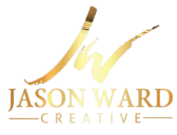Creative Consultancy
Ever Wondered how Consultancy can help you?
In many industries it is entirely normal to partner with external consultants to support specific projects or to help achieve longer term development goals. From creating brand propositions, to working on IT systems or calculating the exact location for garbage cans in theme parks - the world of consultancy is varied.
The great consultant sees your business dispassionately from the outside without prejudice. They will be interested in understanding your creative and commercial journey and will ask questions. Additionally they give you access to talents, experience and ability to support all aspects of your growth and development.
So why don’t creative businesses work with consultants? The answer could lie in the fact that most creative companies are either manufacturers or retailers. Whereas the consultant is neither - let me explain!
Manufacturers create art, products or experiences to sell and retailers package up those creations and sell them on with a margin. The consultant is neither manufacturing or selling a product but is sharing knowledge, insights and experience that support manufacturers and retailers.
When we started the DawsonWard Creative Consultancy many people asked us if we were agents, they asked us if we were producers, or they wanted us to sell their products. We are none of those things but we can help you develop your business so that you can be in a position to get the work you want, to work out what work you want, or just learn how to plan effectively!
With no cultural reference point how do we explain what a creative consultant can do for your business. Let’s look at two examples; Research and Planning Doesn’t sound very glam does it? But development in both of these areas will drive your company’s growth.
RESEARCH
We have seen in our industry that for many companies, research and development is not a defined function. It can come from a creative’s own idea of what they want to create or because “we did that last year and it worked really well” or because “did you see those other people are doing that we should do it too”. Few companies are researching their own market to better understand the trends and, more importantly, the gaps! I use my experience as a creative in a corporate setting to help you understand your market and competition
As a simple example let’s say you are in live entertainment and want to set up an Abba tribute. The group is always popular, the music is great and they have an easily identifiable image. If you research Abba tributes in the UK you will find literally hundreds to choose from -charging between £600 and £3000 per night. With this level of market saturation and an Abba show now available at £600 per night we might suggest that this is not the best time to be in the Abba business! But without research you would never discover this.
Our experience with businesses that use research has convinced us of how useful it can be. We share research findings with our clients as a way to inform creative and commercial decisions but also to demonstrate the importance of knowledge and preparation when developing your creative business. How can you pitch to a client if you don’t know as much as possible about their business?
PLANNING
In our experience the business cycle of most creative companies is erratic driven by uncertainty and with very few creatives taking a longer term strategic view. This is totally understandable in our sometimes precarious industry. We always suggest that there is an opportunity to look at every contract as the chance to both earn money and develop your business.
I encourage creatives to ask;
- Is this work achieving your desired margins? (Do you have desired margins?)
- Are you using this contract to develop your offering, your contacts and yourselves?
- What does this work tell the world about your business and who you are as a creative?
- What is the next step from this contract?
I often hear from creative entrepreneurs that their measure of success is, in the words of Stephen Sondheim, the fact that “I'm still here”. Outside of our industry, businesses work on five year strategies to develop their brand, their product, and their people. Short term thinking is endemic at all levels of our industry from the actor or performer constantly looking for the next contract, through to venue programmers and gallery owners looking for quick hits.
I believe that there is a better way to operate, and we would love to help you develop your creative business to achieve that.
